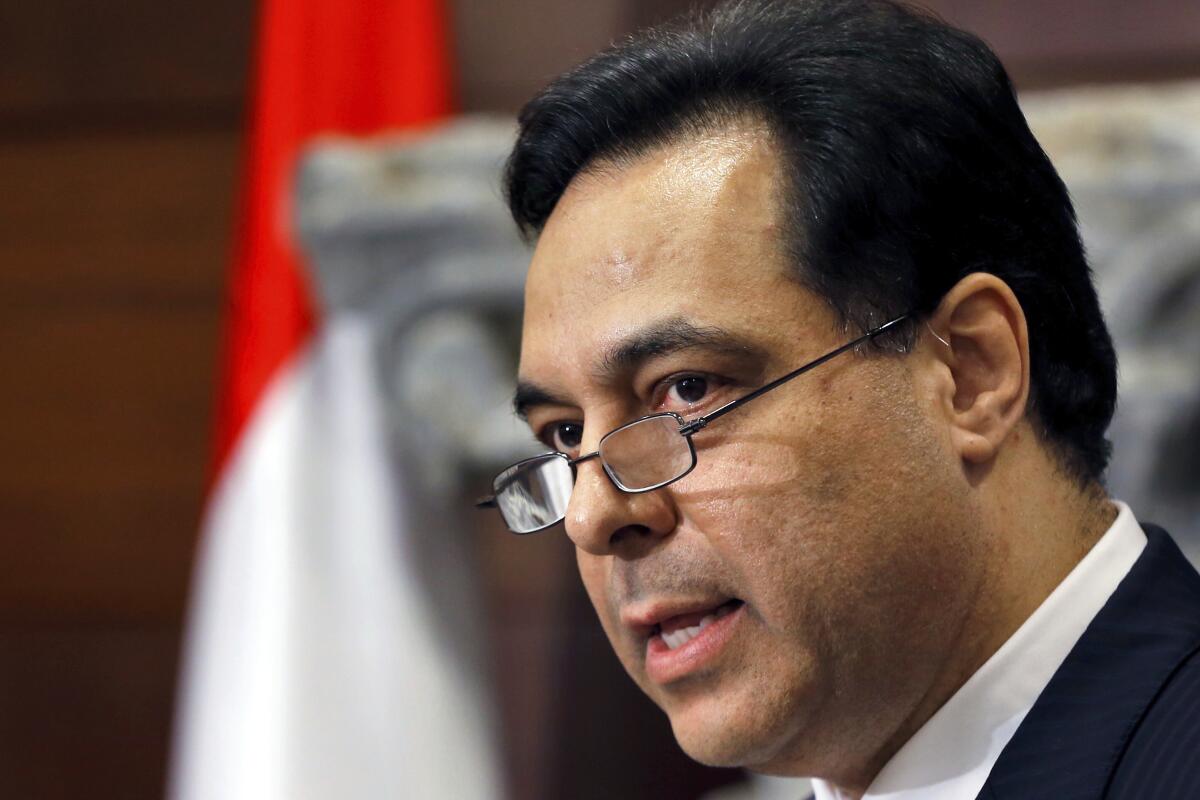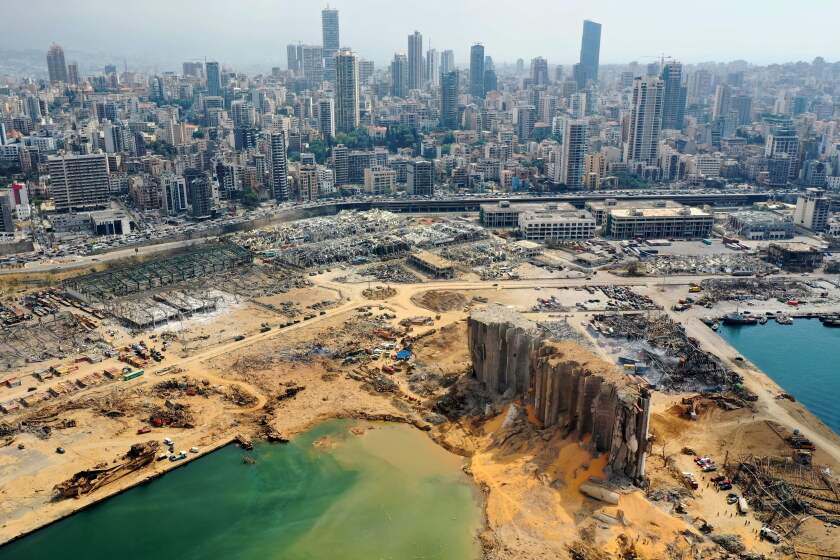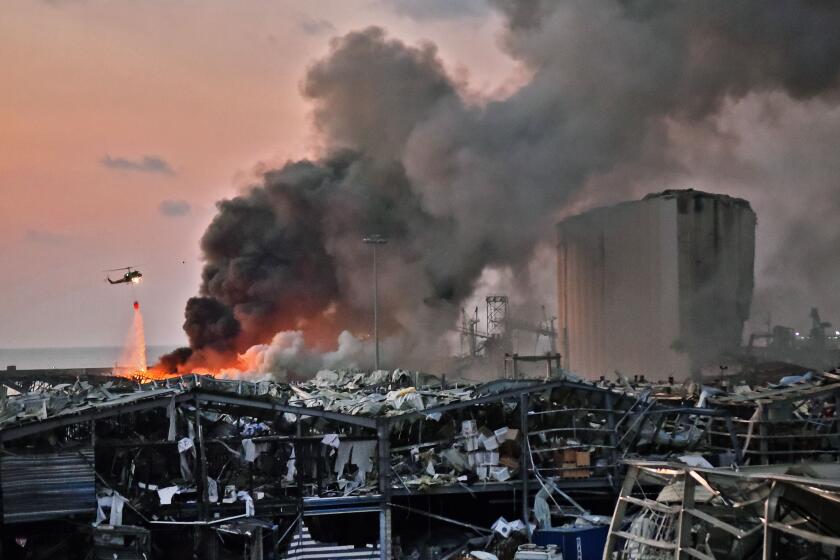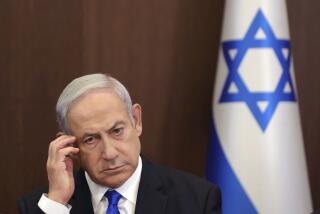Judge in Lebanon charges prime minister, three other officials in Beirut blast

- Share via
BEIRUT — The prosecutor investigating August’s massive Beirut blast filed charges Thursday against the caretaker prime minister and three former ministers, accusing them of negligence leading to the death of hundreds of people, Lebanon’s official news agency said.
Judge Fadi Sawwan filed the charges against Premier Hassan Diab and former Finance Minister Ali Hassan Khalil, as well as Ghazi Zeiter and Youssef Fenianos, both former ministers of public works.
All four were charged with carelessness and negligence leading to death in the Aug. 4 explosion at Beirut’s port, which killed more than 200 people and injured thousands. The explosion was caused by the ignition of a large stockpile of explosive material that had been stored at the port for years with the knowledge of top security officials and politicians who did nothing about it.
The four are the most senior individuals to be indicted so far in the probe, which is being conducted in secrecy. Anger has been building up over the slow pace of the investigation, lack of answers and the fact that no senior officials have been indicted.
About 30 other security officials and port and customs officials have been detained in the probe so far.
Diab, a former professor at the American University of Beirut who became prime minister late last year, resigned a few days after the blast, which leveled the country’s main port and destroyed large parts of the city. He has continued to serve in a caretaker capacity while efforts to form a new government have floundered amid political disputes.
In Lebanon, a country scarred by civil war and its role as a geopolitical pawn, the official explanation behind the Beirut explosion is just one of many.
The blast is considered to be among the largest non-nuclear explosions ever to be recorded.
Zeitar was transportation and public works minister in 2014, followed by Fenianos, who held the job from 2016 until the beginning of 2020. Khalil was finance minister in 2014, and from 2016 to 2020.
Documents surfaced soon after the explosion showing that on at least 10 occasions over the past six years, authorities from Lebanon’s customs, military and security agencies and the judiciary raised the alarm over a massive stockpile of potentially dangerous chemicals being kept with almost no safeguards at the port in the heart of Beirut.
President Michel Aoun, in office since 2016, said he was first told of the stockpile nearly three weeks before the explosion and immediately ordered military and security agencies to do “what was needed.” But he suggested his responsibility ended there, saying that he had no authority over the port and that previous governments had been told of its presence.
Los Angeles Times reporter Nabih Bulos was less than 500 yards from the center of the massive explosion in Beirut. He lived to tell the tale
Since the material arrived in Lebanon in late 2013, four prime ministers have been in office.
Former premiers Najib Mikati, Tammam Salam and Saad Hariri have reportedly said that they were not aware of the existence of the material at the port. Diab has said he was informed of the presence of the “explosives” only days before the blast and had planned to visit the site. He told reporters earlier this year that he canceled his visit to the port after he was told that the material was fertilizer.
Investigators probing the blast had focused on personnel at the port. Judge Sawwan said he has set Monday, Tuesday and Wednesday as dates for questioning the four ministers.
Both Khalil and Fenanios were sanctioned by the U.S. in September this year, the first two Lebanese officials to be subjected to such measures outside of the Hezbollah extremist group.
More to Read
Sign up for Essential California
The most important California stories and recommendations in your inbox every morning.
You may occasionally receive promotional content from the Los Angeles Times.












